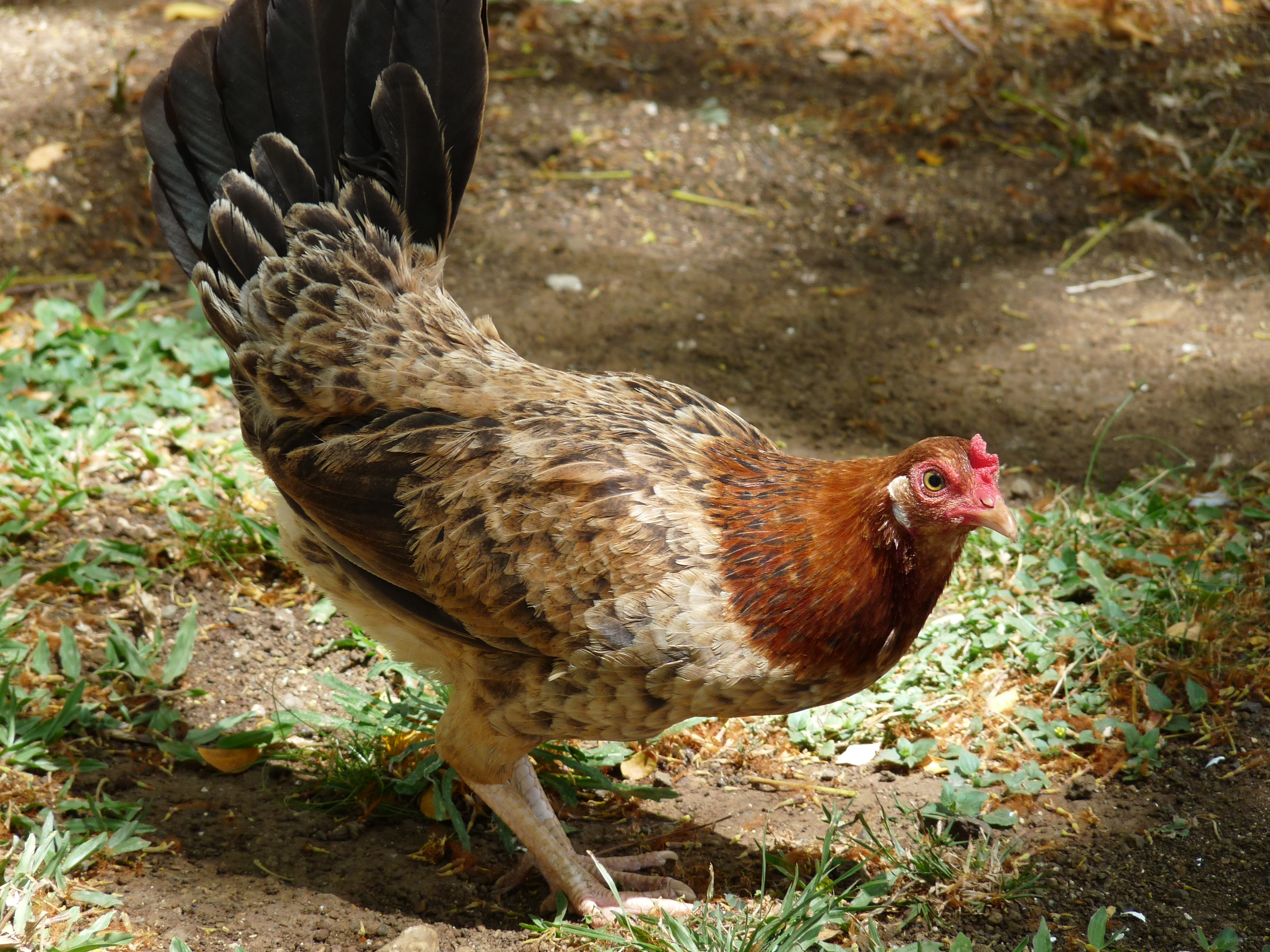Some three-quarters of all the birds in the world are chickens. In the past, the birds were kept for their eggs – that was when eggs were a seasonal product, I was astonished to learn – but now they are raised for their meat.
My grandmother kept chickens and other animals. Most people did so in the Jamaican countryside. I can remember going to the chicken coop – a crude cabin of wood and chicken wire – to check for eggs as a child. In the daytime the birds strolled around the yard, pecking for worms, insects, and the corn thrown at them. Each evening, we rounded them up and put them back in the coop. If I remember correctly, we had to do that so that the mongoose would not feast on them.
Chickens are originally from South East Asia and were first domesticated there millennia ago. They spread around the ancient world through trade and empire as they were easy to carry and feed. The Ancient Egyptians were the first to figure out artificial hatching with their version of the modern egg incubator. If the eggs could hatch year-round, then there would be meat all year.
The chickens reached my Caribbean part of the world via a slave ship. They came to the rest of the Americas via the ships of slavery and colonialism.
The standard Jamaican Sunday dinner is rice and peas and chicken. As a child, it was our job to catch the chicken. Get a big bowl. Put it over the body of the chicken, press down on it as you wrung the bird’s neck. As children we got off the bowl to watch the blood gush from the struggling, dying bird. Children are like that. Then pluck the feathers. Gut and season the bird. Cook and eat for a fulsome dinner.
Chicken is now the most consumed meat in the world thanks to the logic of capitalism. And, also to the rise of the global fast-food industry. I remembered when Kentucky Fried Chicken (KFC) and McDonalds came to Britain in the early 1980s. The line-ups stretched around the blocks. We desperately wanted a taste of all the good things from America!
I also remember the jokes about Black people and their love of fried chicken. At first it was puzzling as everyone ate KFC. Besides, we were not African Americans. I didn’t understand then about the American export of anti-Black stereotypes to around the world.
The KFC recipe is another African American cultural product which has been bleached of its Black roots. Spicy fried chicken was a standard way of preparing the bird for lunch or dinner as it could eaten hot or cold. In slavery days the cooking was done by enslaved people, and it is their cultural knowledge and choices that shaped American cooking culture.
As everyone ate fried chicken why did it become a stereotypic food associated with African Americans? Well, the answer lies in the abolition of slavery. White people were angry about the loss of the institution and even madder that the emancipated people had the right to vote and were demanding jobs, education, health care, and so on. White people started the Ku Klux Klan (KKK); they went on a rein of terror with lynchings; they made fortunes from anti-Black cultural products like minstrel shows and golliwog dolls. In food ways, nostalgia for the good old days of slavery came in the brands of Uncle Ben’s rice, Aunt Jemima pancake mix and syrup, and friend chicken.
The nascent film industry continued the anti-Black trend by cementing the link between fried chicken and African Americans. The Birth of a Nation came out in 1915 and lionised the KKK as the heroes and protectors of White America fighting against a raging Black menace that loved eating fried chicken. It is a landmark film in film history. Not a single Black actor is in the film. Instead, they were played by White actors in blackface make-up, but that is whole other story. The film was a massive global hit – it had sold out performances in Toronto – and its anti-Black message became global too.
Let’s get back to the chicken. When Black people eat fried chicken, we are mocked and stereotyped for doing so. When White people eat the same fried chicken, they are just eating a tasty meal. KFC and other brands have made fortunes from Black food culture. Today, Black neighbourhoods are filled with fast food restaurants serving fried chicken but lack supermarkets offering fresh fruits and vegetables. The Black history of chicken is another window in how the after-life of slavery continues to shape Black lives.
© Jacqueline L. Scott. You can support the blog here.

